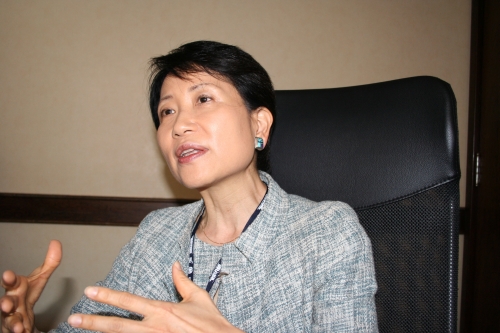An appraisal of the Civil Society Organisations (CSO) Network under the Global Environment Facility (GEF) has thrown up a wide range of recommendations aimed at ensuring that the campaigners engage better with the financial organisation.

The Independent Evaluation Office (IEO) of GEF, in an assessment aimed at unravelling how the GEF CSO Network has fulfilled its role, recommends that a contemporary vision for the Network should be created within the new GEF architecture.
The vision, it adds, should, besides clarifying the Network’s role and setting out a shared understanding amongst all parts of the Partnership of the Network’s contribution in guarding the global commons, likewise identify a modality to appropriately finance Network activities.
The GEF unites 183 countries in partnership with international institutions, CSOs, and the private sector to address global environmental issues while supporting national sustainable development initiatives. It is believed to be the largest public funder of projects to improve the global environment.
The IEO also wants the Secretariat of the Global Environment Facility (GEFSEC) and CSO Network to develop clear rules of engagement that guide cooperation and communications, saying that this could be adjusted as needed.
Furthermore, the evaluators demand that the CSO Network should continue to build itself as a mechanism for strengthening civil society participation in the GEF at the global, regional and national levels, even as the Network pays particular attention to: membership development, capacity building and value-added working relationships across the Partnership.
The CSO Network has also been called upon to strengthen its governance, with particular attention to: annual work plans, cooperation with IPAG, terms for the Network’s Regional Focal Points and the complaints process.

On request by the GEF Council at its 47th meeting in October 2014, the GEF IEO launched the evaluation of the GEF CSO Network, which reviewed the Network’s performance, relevance, effectiveness and results in promoting knowledge dissemination and CSO involvement in GEF policies and programmes.
The evaluation assessed network performance in the context of other forms by which the GEF engages with civil society. According to Juha Uitto, Director of the IEO, the evaluation required wide-ranging consultations across the GEF partnership as well as intensive efforts to gather evaluative evidence from a variety of data sources and stakeholders.
He adds that the evaluation conclusions are organised according to two key evaluation questions: “To what extent is the CSO Network meeting its intended goals and strategic objectives and adding value to the GEF Partnership and its membership?” as well as “How are Network features contributing to the effective and efficient functioning of the Network?”
On question one, the evaluation reached the following conclusions:
- The GEF CSO Network continues to be relevant and is delivering results to the GEF Partnership.
- The CSO Network’s activities are distant from the country level where GEF projects make their mark and from where the majority of Network CSOs operate. As such, the Network’s is compromised in its ability to inform Council with country perspectives and in servicing its members.
Concerning question two, the evaluation of the GEF CSO Network concluded:
- The CSO Network today is operating in an expanding GEF Partnership without a shared contemporary vision of the role the Network can play within the changing architecture and the resources that it needs to be effective.
- Within the context of an increasingly complex operating environment, the Network has strengthened itself organisationally over the evaluation period but governance challenges remain.
Based on the conclusions, the evaluation formulated the recommendations.
Uitto adds that, during the last few months, the IEO consulted with several stakeholders on the approach to the Sixth Comprehensive Evaluation of the GEF (OPS6) that will inform the next replenishment negotiations of the GEF.
“This evaluation and its various sub-studies will occupy the office for the several coming months,” he says, adding that the consultations identified important areas to be addressed in the evaluation including the role of the GEF in the changing landscape for environmental finance, the new focus on programmatic and integrated approaches by the GEF and the overall health of the GEF partnership.
“The findings of this evaluation will be ready by June 2017. The IEO will have a very busy year completing this evaluation, and we will continue to request inputs from many of you into this important exercise,” Uitto submits.
An independently operating financial organisation, the GEF provides grants for projects related to biodiversity, climate change, international waters, land degradation, the ozone layer, and persistent organic pollutants.
Since 1991, the GEF has reportedly achieved a strong track record with developing countries and countries with economies in transition, providing $12.5 billion in grants and leveraging $58 billion in co-financing for over 3,690 projects in over 165 countries. Through its Small Grants Programme (SGP), the GEF has also made more than 20,000 small grants directly to civil society and community-based organisations, totaling $653.2 million.
